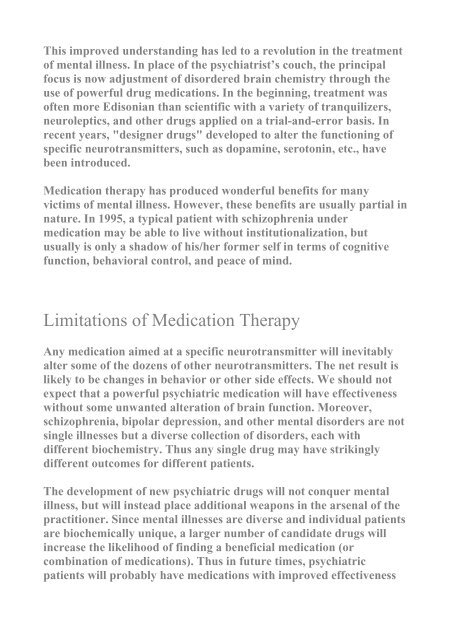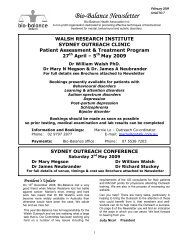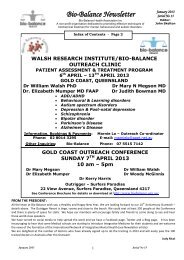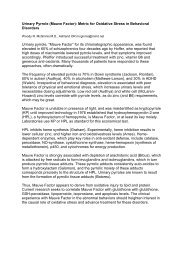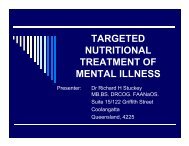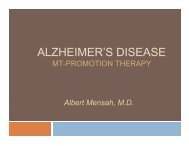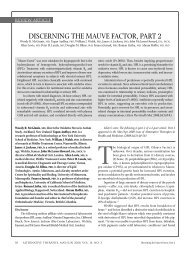Download PDF - Bio-Balance Health
Download PDF - Bio-Balance Health
Download PDF - Bio-Balance Health
- No tags were found...
You also want an ePaper? Increase the reach of your titles
YUMPU automatically turns print PDFs into web optimized ePapers that Google loves.
This improved understanding has led to a revolution in the treatmentof mental illness. In place of the psychiatrist’s couch, the principalfocus is now adjustment of disordered brain chemistry through theuse of powerful drug medications. In the beginning, treatment wasoften more Edisonian than scientific with a variety of tranquilizers,neuroleptics, and other drugs applied on a trial-and-error basis. Inrecent years, "designer drugs" developed to alter the functioning ofspecific neurotransmitters, such as dopamine, serotonin, etc., havebeen introduced.Medication therapy has produced wonderful benefits for manyvictims of mental illness. However, these benefits are usually partial innature. In 1995, a typical patient with schizophrenia undermedication may be able to live without institutionalization, butusually is only a shadow of his/her former self in terms of cognitivefunction, behavioral control, and peace of mind.Limitations of Medication TherapyAny medication aimed at a specific neurotransmitter will inevitablyalter some of the dozens of other neurotransmitters. The net result islikely to be changes in behavior or other side effects. We should notexpect that a powerful psychiatric medication will have effectivenesswithout some unwanted alteration of brain function. Moreover,schizophrenia, bipolar depression, and other mental disorders are notsingle illnesses but a diverse collection of disorders, each withdifferent biochemistry. Thus any single drug may have strikinglydifferent outcomes for different patients.The development of new psychiatric drugs will not conquer mentalillness, but will instead place additional weapons in the arsenal of thepractitioner. Since mental illnesses are diverse and individual patientsare biochemically unique, a larger number of candidate drugs willincrease the likelihood of finding a beneficial medication (orcombination of medications). Thus in future times, psychiatricpatients will probably have medications with improved effectiveness


